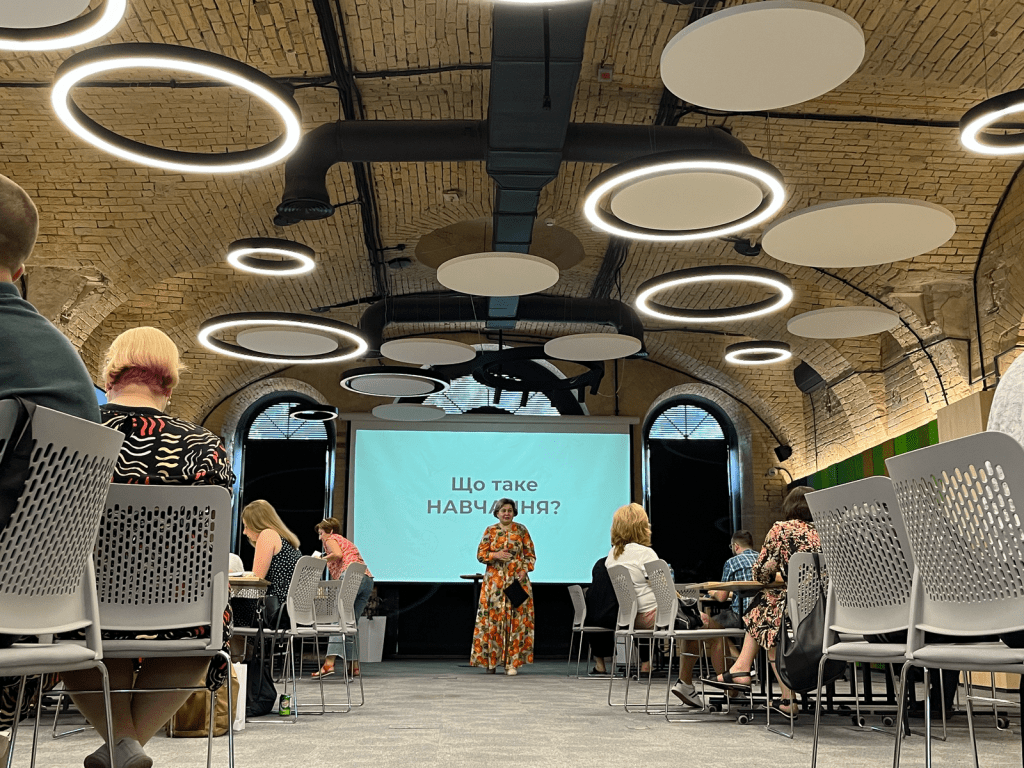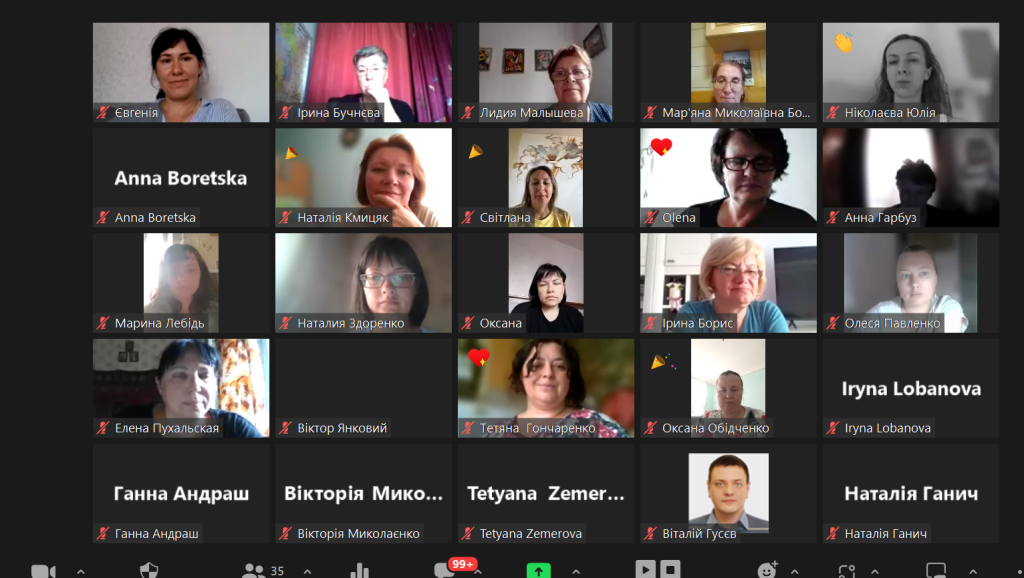This past summer, Wikimedia Ukraine implemented the first installment of the “Reading Wikipedia in the Classroom” course in Ukraine. 300 Ukrainian educators enrolled the course and had an opportunity to study for five weeks and complete a final assignment designing an integration of Wikipedia in their lessons.
In this article, we’ll look at how the project came about, results of the first installment, and what comes next.
The concept — helping teachers develop vital information literacy skills
Wikipedia has been a tremendous learning resource for students and teachers alike, but it’s important to get it right – and understand the benefits and limitations of Wikipedia in education.
A few years ago the Wikimedia Foundation developed the international “Reading Wikipedia in the Classroom” program, which is designed to help educators and students develop vital media and information literacy skills for the 21st century, including by learning how to leverage Wikipedia.

Wikimedia Ukraine embarked on a journey to create a Ukrainian localization of the program in 2021. The project was delayed early last year because of the start of Russia’s all-out war against Ukraine. While the invasion is still ongoing, life in Ukraine goes on. What’s more, as noted by one course participant from the frontline region of Zaporizhia that’s constantly under Russian shelling, online education is even more important as instruction in their region and many others is being done remotely for security reasons. So, we’ve been able to resume work on the course and finalize it.
To implement the course, we partnered with Prometheus, Ukraine’s biggest platform for online courses. The course has been led by Maryna Chala, Certified Trainer of the international program, and supported by Wikimedia Ukraine’s team of staff and volunteers. The project has been possible thanks to the Wikimedia Foundation, which developed the international program and provided a grant for implementing the course in Ukraine.
We worked internally and with Prometheus over the past months to localize the course to the needs of Ukrainian educators, including by translating its text and developing supplementary materials that would make the course’s certificate recognized by Ukrainian educational institutions as helping teachers meet part of formal professional development requirements.
Results of the first installment
In July we finally launched the first installment of the course. 600 people registered for the first installment of the course; we selected 300 participants who match the course’s requirements most.
(We promoted the course on social media, including through advertising, and also relied on Prometheus’ wide network of educators who use the platform frequently. According to a survey of participants, roughly half of them learned about the course from Wikimedia Ukraine and half from Prometheus).
The first installment ran until early September. It included three modules and a final assignment distributed across five weeks. Participants were able to join webinars on Zoom every Friday, but the main work was done on the Prometheus platform – reading and watching course material, completing exercises and tests, communicating on the forum. Those who successfully completed the course, including the final assignment, received a certificate from Prometheus and the Wikimedia Foundation.
In the end, 64 participants – around 21% – submitted a final assignment and received a passing grade. The dropout rate proved higher than we’d hoped for (we initially planned for 100 teachers to complete the final assignment), but the results are still quite good for virtual courses, which typically see high levels of churn among participants.
It’s heartening to see that the course helped increase awareness of how Wikipedia works among teachers, dispel myths, and direct them how to use Wikimedia projects in their work. Many teachers reported not knowing that Wikipedia can be edited by anyone and is a volunteer project before taking the course.
After the course, 84% of participants who’ve filled out the survey are more confident that Wikipedia is a valuable source of information after taking the course (the other 16% haven’t changed their mind just because they had been confident in that before the course in the first place), and 89% are more confident that they know what to do if they find false/unreliable information on Wikipedia.
We learned a lot while implementing the course, but one of the most important learnings has been the importance of regular and proactive communication. Maryna Chala, the course’s trainer, invested a lot of time in direct communication with individual participants during the course, which helped set them up for success. In the survey, Maryna received extremely positive feedback from course participants who have noted that she was both competent and always available to support them. (94% of respondents fully agreed that communication with the trainer was a positive and useful experience; no one disagreed).

Scaling the course for the future
After the successful graduation of the first cohort of course participants, we plan to scale the course so significantly more educators can take it in the future.
We plan to to adapt the course later this year so it is divided into two parts:
- a “lighter” version of the course that is constantly available on the Prometheus platform as a self-directed, asynchronous course (without the final assignment and without graded exercises, with more focus on text materials and automatically graded tests);
- a more “advanced” version of the course for those who have passed the “lighter” version, which will include webinars and a final assignment graded by the trainer and will take place on a different platform.
Once the adaptation is done, we hope that many more Ukrainian teachers will get important media skills – and start using the power of Wikipedia and free knowledge in the classroom.
“I have profound admiration for Wikimedia Ukraine’s leadership in the Reading Wikipedia in the Classroom program. Their dedication and vision have shaped the program into a meaningful learning experience for local teachers, even in these deeply challenging times. The program’s power to change how educators use Wikipedia in their teaching practices is evident in the teachers’ final assignments – they have proposed ways to use Wikipedia to help their students analyze and contrast information, to challenge their point of view, and even as a way of bringing art and digital literacy skills together in the classroom.
The partnership between Wikimedia Ukraine and Prometheus has not only been key for this implementation; it also marks the start of a strong alliance. Looking ahead, I’m optimistic about the long-lasting impact this partnership will have on the education sector in the region. The successful completion of this inaugural RWiC implementation is a significant achievement, and I’m looking forward to celebrating the future that Maryna, Anton, and the team are building for more Ukrainian teachers!”, says Melissa Guadalupe Huertas, Senior Program Officer, Education at the Wikimedia Foundation.
More information (in Ukrainian):
- The course’s page on the Prometheus platform
- Ukrainian localization of the “Reading Wikipedia” booklet
Parts of this article were previously published in the Wikimedia Education newsletter.

Can you help us translate this article?
In order for this article to reach as many people as possible we would like your help. Can you translate this article to get the message out?
Start translation